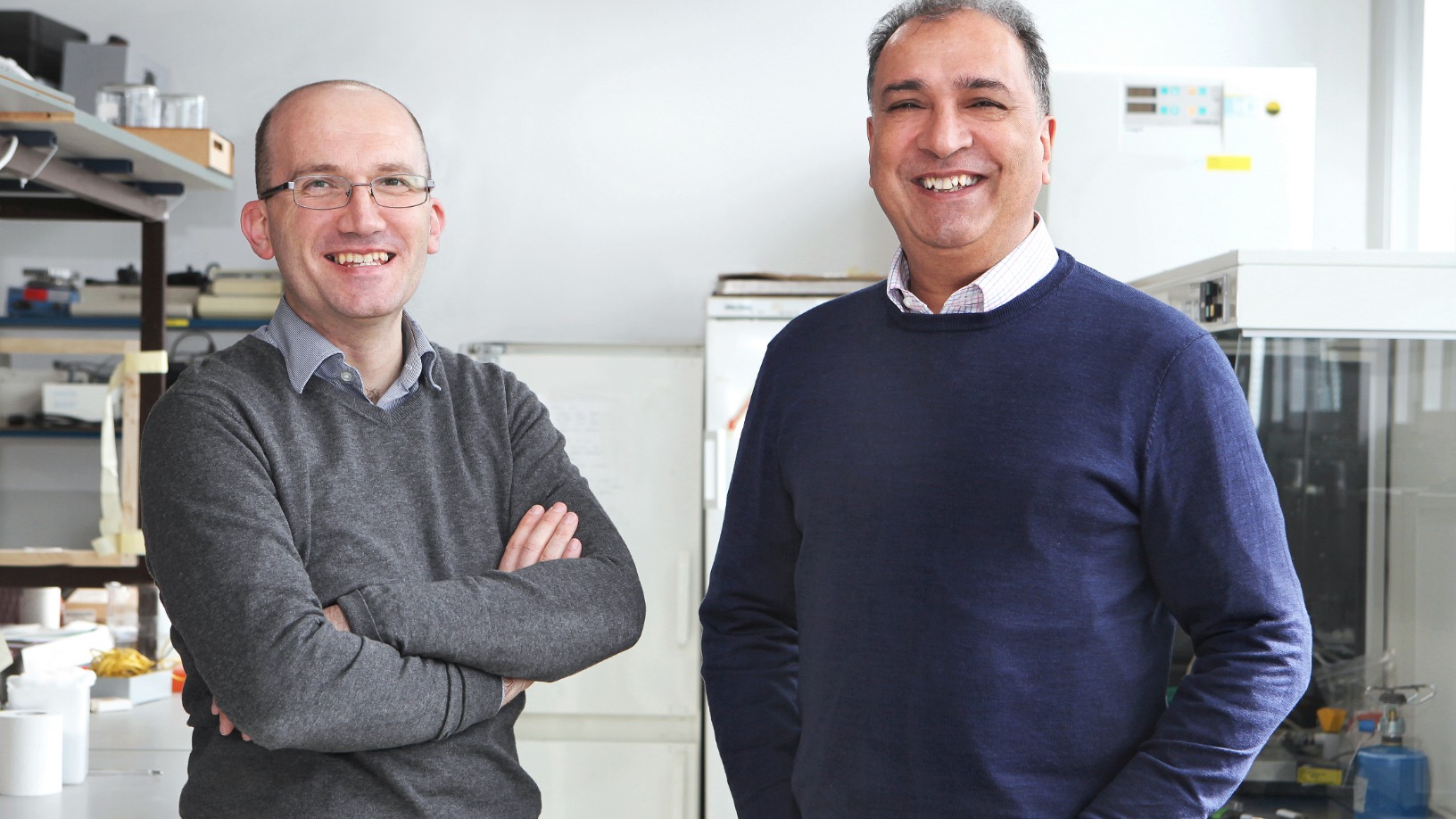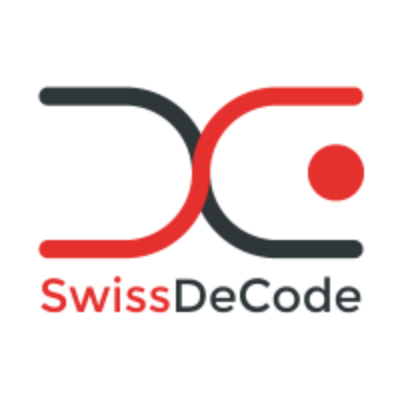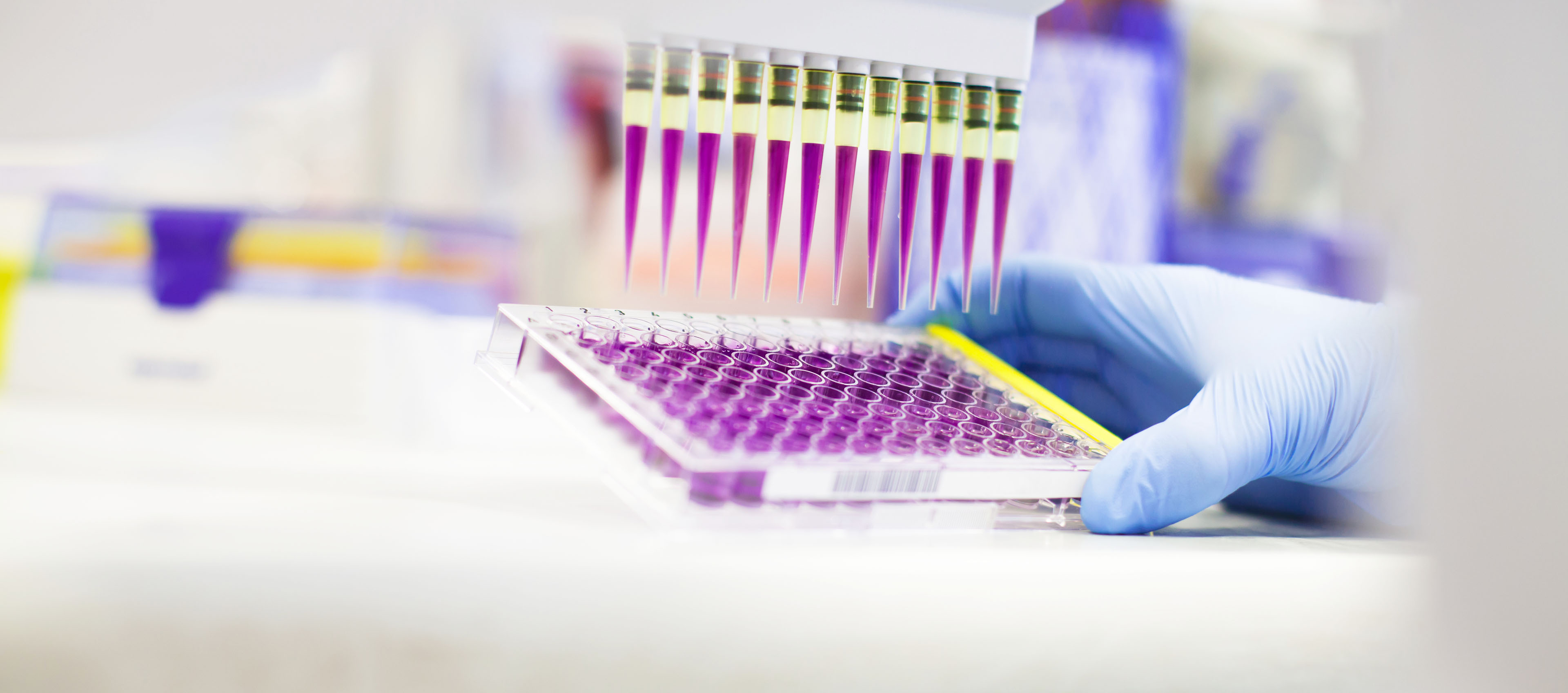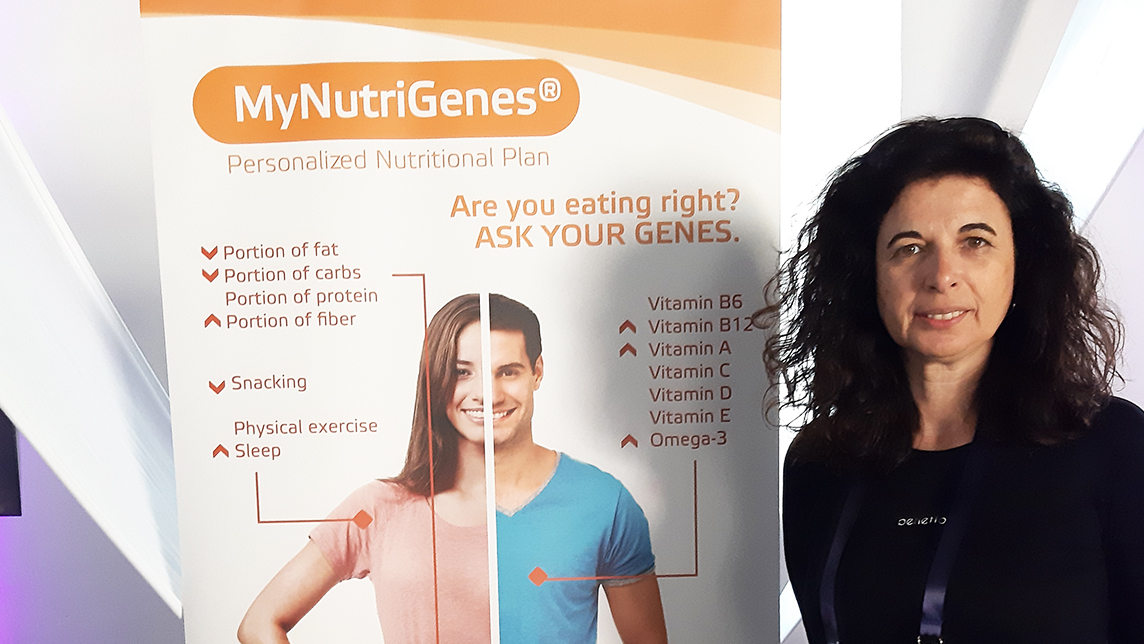In the aftermath of several food contamination scandals in the 2010s, a pitch by Italian geneticist Gianpaolo Rando at a tech innovation event in 2014 caught the attention of international consultant and investor Brij Sahi. In 2015, the two men launched a Kickstarter-funded project, BeerDeCoded, using Rando’s DNA food testing model to test the waters for a potential business partnership.
The Kickstarter project was a success, and Sahi (CEO) and Rando (CTO) co-founded SwissDeCode in Lausanne in 2016. In the same year, they launched their first product, DNAFoil – an on-site DNA testing kit that can identify pre-selected ingredients or contaminants within 30 minutes.
“Consumers want to know more about the food they consume. DNA is the unique identifier for foods. With DNA testing, we can authenticate the food to verify if it's really what it says it is or to detect threats or contaminants that are present in food,” CEO and co-founder Sahi told CompassList in a recent interview.
Currently, samples are sent to external laboratories for PCR tests using DNA technology, but it takes a week or longer for the test results to be received by the companies. Another option is ELISA, an antibody protein test, but it produces less accurate results.
The portable on-site testing solution is a potential game-changer for the food industry, enabling the Swiss startup to tap into the global food certification market estimated to be worth almost $12.5bn by 2026.
Lab-in-a-box
By the time Sahi and Rando met, the latter had spent over a decade in genomics research and had developed the base technology for rapid on-site DNA testing. At the University of Geneva, Rando also co-invented a lab-free technology that can amplify trace amounts of DNA from food.
The litmus-type test uses a proprietary reagent that changes color in response to the presence of tiny concentrations of any desired DNA sequence. Anyone can easily use the “lab-in-a-box” test kit to detect trace amounts of any ingredient or allergen in just 30 minutes without using any lab equipment.
The European horsemeat contamination scandal in 2013 led Rando to explore new DNA testing solutions for food when he observed that many of his fellow PhD peers were contracted to conduct horsemeat testing in laboratories.
According to Sahi, the two men "saw the opportunity to do something as accurate as a PCR test in the lab but can also be performed on-site to deliver a result as quickly as the antibody protein tests. Manufacturers and farmers are looking for rapid, precise on-site testing and getting a result in half an hour rather than in seven days,” said Sahi, a former air transport engineer who has also worked in the UK and China.
“Today, with Covid-19, the whole world is aware of DNA testing and the exact amount of testing needed. The problem is, until now, agro-industrial companies did not have any scalable solution for the precise level of testing required," Sahi added.
From beer DNA to pork
The BeerDeCoded project in 2015 involved extracting the DNA of 140 types of beer to construct a DNA tree of beers to determine the genetic similarities of the beers and prove that people who like a specific type of beer would also like those that were most similar genetically.
The beer project’s success motivated Sahi and Rando to join the first Swiss edition of the US accelerator Mass Challenge in 2016, just four months after the startup was founded. SwissDeCode was tasked with developing a test to detect specific bacteria added to Swiss cheese.
Manufacturers and farmers are looking for rapid, precise on-site testing
The test was successful and validated the startup’s 30-minute DNA testing technology. However, based on market intelligence from local companies and customers, the co-founders decided to develop a pork contamination test kit to expand commercially.
“DNAFoil is designed for non-expert use after only a few hours of training. It fits into a small box and consists of several small containers and pipettes, a reactive paper strip and SwissDeCode's proprietary reaction mix. It requires no mains supply or cold-chain, making it an ideal solution for on-site testing at farms,” Sahi said.
A sample is first prepared by crushing it in a plastic barrel where the DNA is extracted. It is then inserted into SwissDeCode's reaction mix in another container and mixed according to strict guidelines. The sample is then left to incubate for about 25 minutes. The reactive paper strip is then inserted into the sample, and a color change will indicate the presence of the targeted DNA.
The startup’s next DNAFoil kit was to detect vegetal adulteration in animal-based products that are diluted and mixed with vegetal material like protein, fat and flour thickeners to save money, risking the presence of allergens in products. Contamination can also occur in transportation or storage, particularly in commodities that travel a long way and have many intermediaries. In production facilities, ingredients may also be inadvertently mixed.
More test kits, including Covid-19
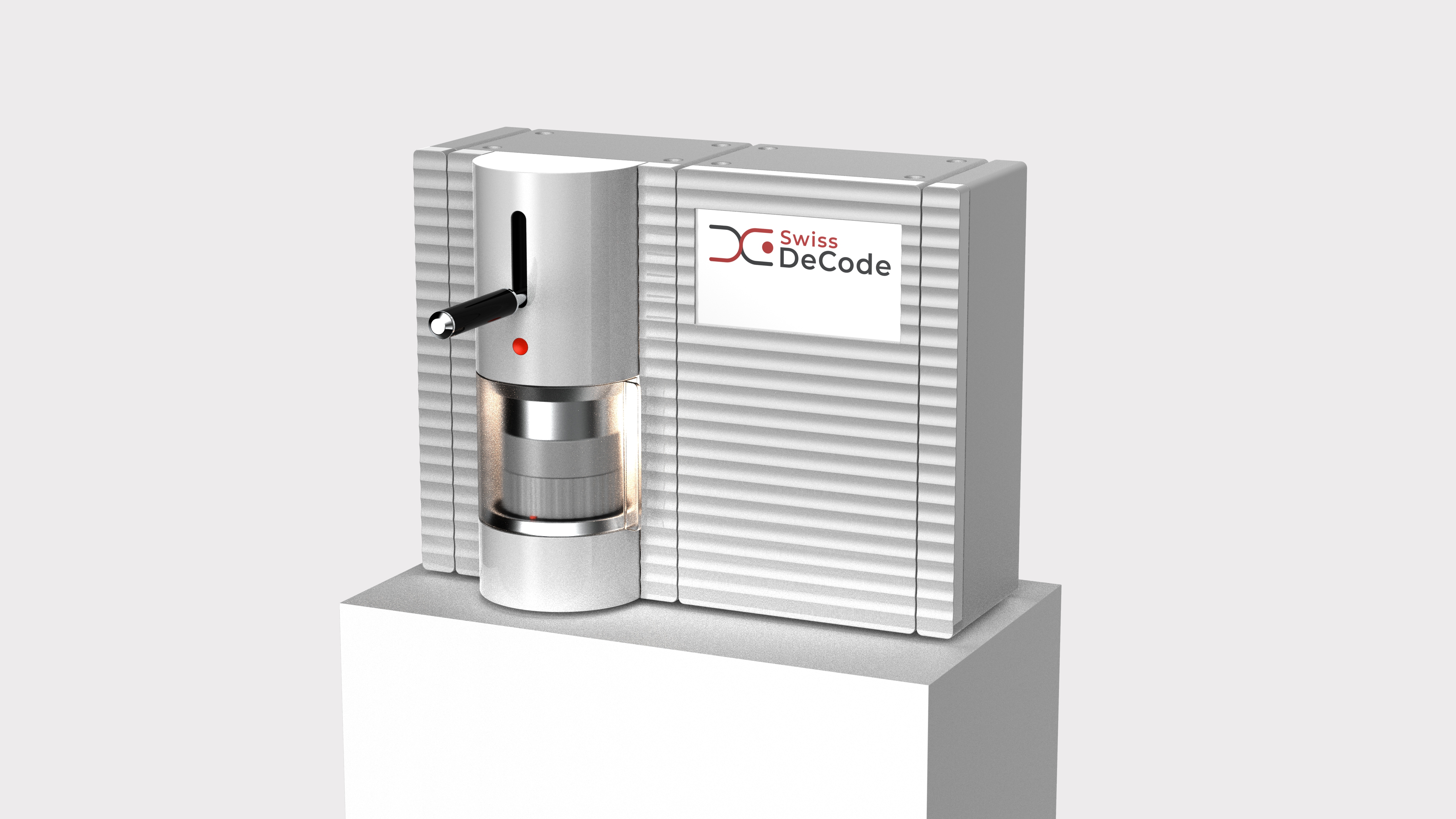
One of the advantages of SwissDeCode's technology is its flexibility. “It normally takes us a maximum of two months from when we've identified the DNA to create a new kit which is a great advantage to our customers,” Sahi said. Each testing kit is single-use and costs €60.
The Swiss government has also validated the DNAFoil technology. “The government compared our test against the PCR for one year and found that we can actually detect bacteria at lower levels than the PCR, that our solution is stable at room temperature for one year and that the agribusiness staff and farmers could perform the test by themselves after one day's training,” he said.
Following the pork and vegetal detection kits, the third DNAFoil testing kit was to detect Cacao Swollen Shoot Virus (CSSV) that destroys around 10% of cacao plants worldwide annually. Global clients like Mars Inc are using the CSSV testing kits.
Early this year, the company launched the A2 milk test kit to tap into the booming sector of the more expensive A2 milk variety. “This was again a customer-driven request for a market that will be worth about $6bn in three years,” Sahi said. “Traceability in this particular supply chain is very important because we start at the farm, where we can differentiate between A1 and A2 milk-producing cows; it is then tested again at the collection centers where trucks will have gone to many farms to pick up the milk. And then, it is re-tested at the end of the production process.”
SwissDeCode has also branched out into the medical field with a Covid-19 test kit to detect traces of the virus on the surface of objects. Funded by EIT Food, the joint initiative was completed within two weeks in collaboration with biotech Microbion, Spanish institute IATA CSIC, University of Helsinki and environmental lab services Eurofins. The kit can detect the presence of the virus on surfaces within 40 minutes from on-site swabs without the need to send the swabs to PCR laboratories.
Although there is currently a high demand for the Covid testing kits, SwissDeCode will not be commercializing the product on a large scale. “We believe that only when it becomes a regulatory requirement, like for pathogens, that the test will really take off. However, with this test, we have already positioned ourselves in this segment, and we are ready for future pandemics,” Sahi said.
Nespresso-style automatic device
Slated for commercial release in 2022, the company will pilot its new BEAMitup testing device later this year. Based on the DNAFoil technology, the larger scale BEAMitup model will cater to the needs of bigger corporate clients. BEAMitup will include the Covid surface testing facility.
“One client said that he had 70 trucks entering his factory daily, meaning 35 hours of testing work by several employees, and so he needed something on a larger scale and with the ability to issue certification. So, we got to work developing BEAMitup,” Sahi said.
According to Sahi, the BEAMitup device looks and works like a “Nespresso" coffee maker. All the DNAFoil processing operations are automated, just like the coffee machine. The samples are manually placed into the device, and the rest will be done automatically, including sample preparation, DNA extraction, amplification and detection results.
However, the DNAFoil reactive strip that produces the litmus color result will not be used. It will be replaced by the automated issuance of ISO 17025 certificates to indicate the absence of targeted allergens or contaminants. BEAMitup will record all the data for each sample and send them via the Cloud to SwissDeCode to verify the test data results before the ISO certificates are issued to the clients through BEAMitup.
Like DNAFoil, each test only takes 30 minutes. In addition, the larger-scale BEAMitup can be used to detect eight different types of DNA simultaneously from one sample, making it more efficient and viable for clients with operations in major consumer markets.
“This makes BEAMitup suitable for identifying GMO corn, for example, where we need to look for seven different DNAs, as well as looking for multiple allergens in any food sample,” Sahi said.
Unlike the DNAFoil test kits, the more expensive BEAMitup will be available on lease to clients. Certificates will be issued at €25 apiece with a minimum requirement of 10 per day per customer. “BEAMitup is ideally suited to be established in processes where they're doing multiple tests a day, which is why we are focused on grains and GMOs where the number of daily tests is in the hundreds,” he added.
Blockchain integration
BEAMitup can also be integrated into a client’s blockchain-enabled supply chains, the key to future demand and growth for the company’s business model. “We expect consumer demand to drive blockchain implementation, as it has largely been done for food testing,” Sahi said.
“The end customer must have the confidence that the product hasn't been adulterated in any way, so imminently they will be able to scan a product's barcode on their mobiles and obtain the results from all the testing that's been done right through to the origin of the products and their ingredients.”
Although SwissDeCode is currently not offering any testing services for pathogens affecting humans because of the high level of regulatory approvals required, Sahi has not ruled out plans to enter this market.
“In terms of demand, the biggest market is pathogens. Once we have established the company in the market, this will be the next step. For example, there is no technology today that can rapidly detect salmonella in food. There is an enrichment step that's required for its testing, so we will build this capacity into the capsules we use in our technology to create an on-site test,” Sahi added.
Meanwhile, SwissDeCode is raising about $6.6m, through its CHF 6m seed funding round in Switzerland, to finance the pilot projects needed for the commercialization of BEAMitup in 2022. Investors include Singapore-based foodtech investor VisVires New Protein (VVNP) and EIT Food, an EU-funded foodtech accelerator.
